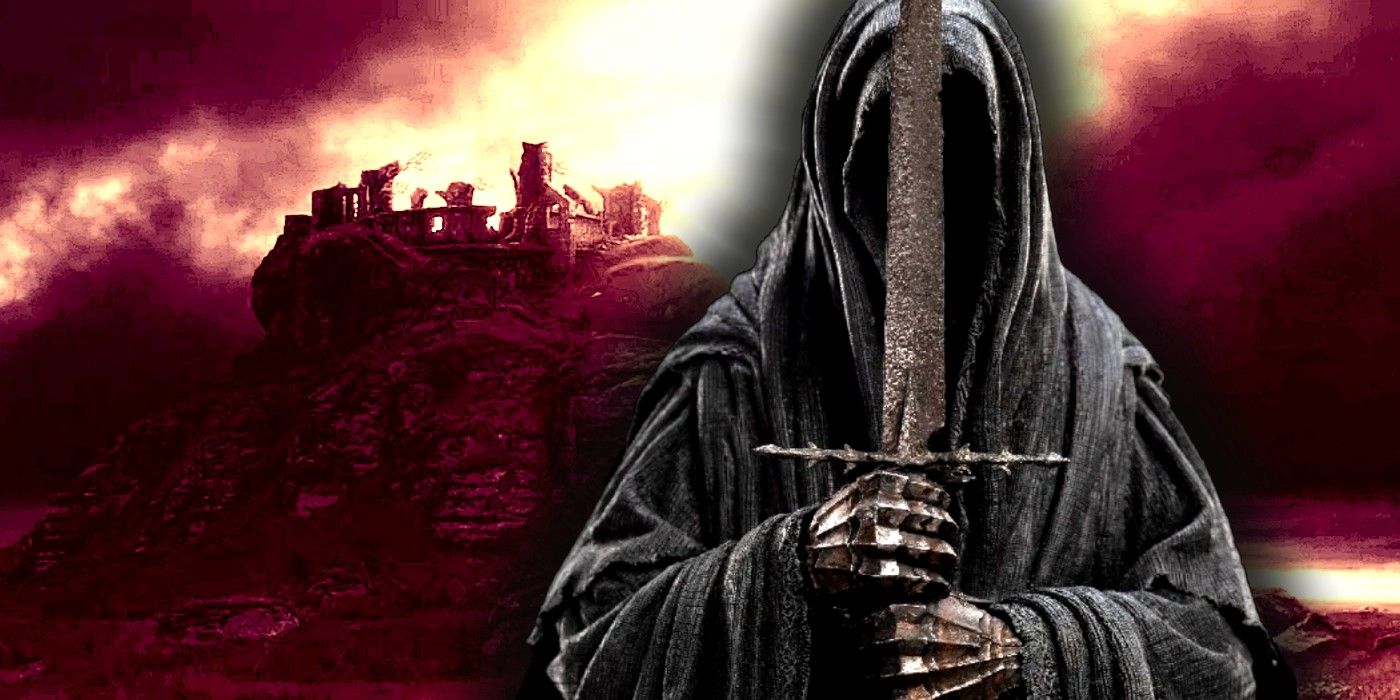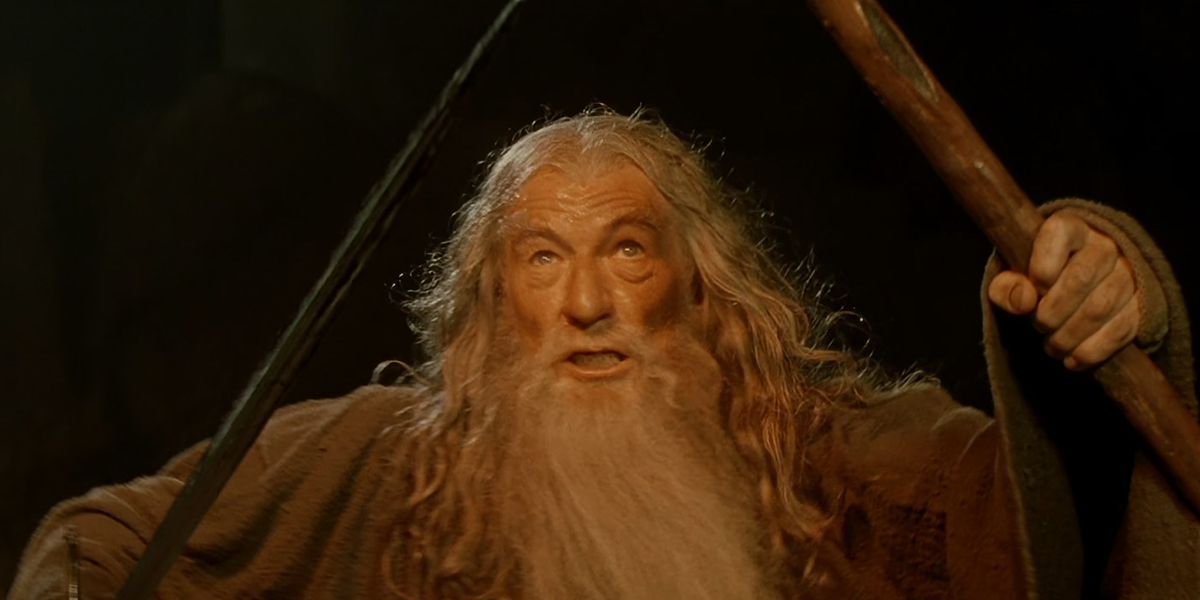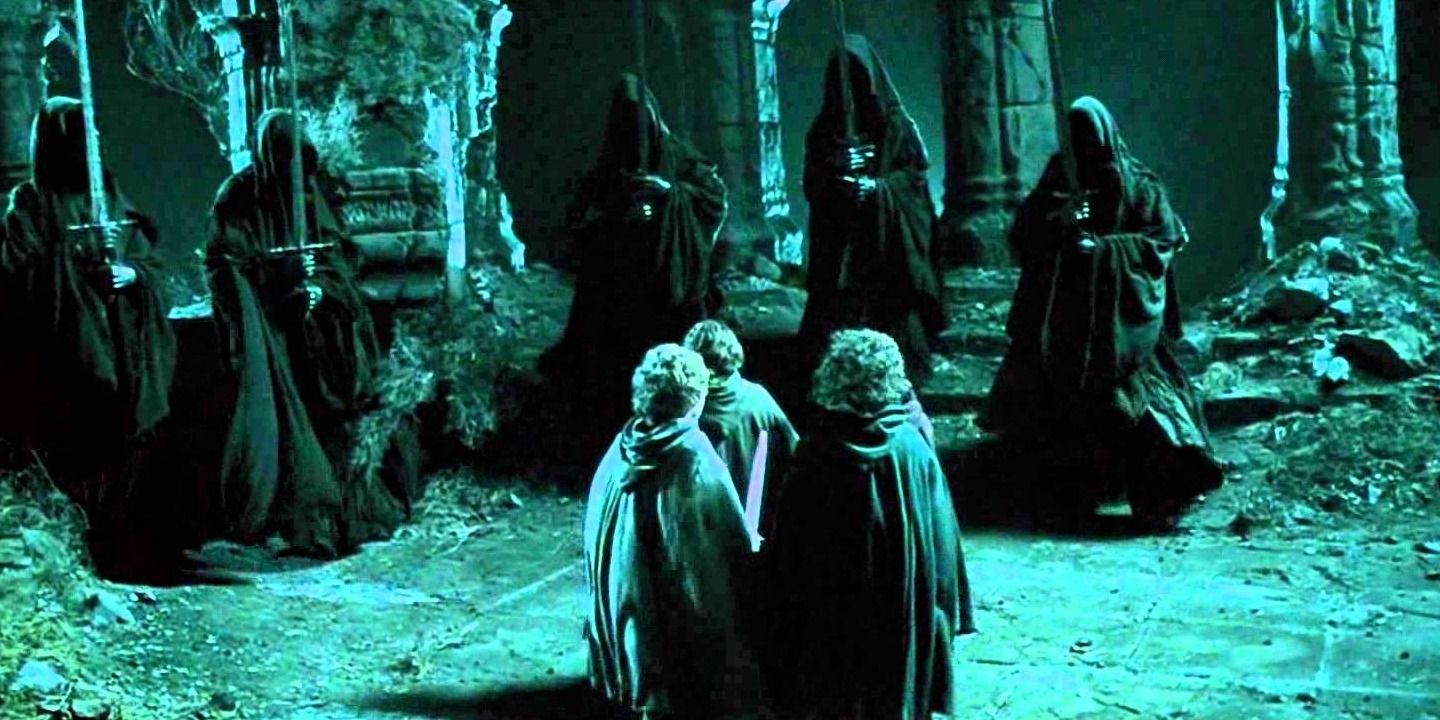The Lord of the Rings may have started out on a light note, but it didn't take long before things got pretty dramatic. Technically, Sauron didn't need his One Ring to conquer Middle-earth, but he still wanted it back. So, he sent the Nazgûl to find and kill the Baggins that had his precious piece of jewelry. With the Black Riders out in full force, Gandalf sent Frodo and Sam to Bree, where he hoped to meet them. The Grey Wizard ended up in the claws of Saruman's treachery, but the Hobbits found a friend in Aragorn.
Aragorn was a worthy addition to the Hobbits' company. He helped them escape the Nazgûl at Bree, and for a while, he kept them safe on their journey. However, Aragorn couldn't keep the Witch-king from stabbing Frodo during their encounter at Weathertop. The Fellowship of the Ring's movie version showed Frodo collapsing into a worthless heap of fear before being stabbed, but that's not exactly what happened. In reality, Frodo tried to fight back, and the Witch-king was actually afraid of him for a couple of reasons.
The Witch-king Was Traumatized by Gandalf's Fire
Tolkien's The Hunt for the Ring essay provides a really good picture of the Weathertop battle. Part of the essay can be found in Unfinished Tales, but the rest is published in The Lord of the Rings: A Reader's Companion. The latter version recounts events from the Witch-king's perspective -- and it turns out that he was thinking about a past trauma.
The LOTR movies didn't show it, but just before Aragorn and the Hobbits made it to the ancient watchtower of Weathertop, there was another battle at the ancient watchtower. Gandalf fought against the Nine Nazgûl, and there were horrible flames visible on the horizon. So, as the Witch-king approached Frodo, he had already "been shaken by the fire of Gandalf, and [he] began to perceive that the mission on which Sauron had sent him was one of great peril." At that moment that the Nazgûl found himself in a lose-lose situation. If he continued looking for the Ring, he would have to face more of Gandalf's fire. However, Sauron's wrath could be even worse if he returned empty-handed.
Why The Witch-king Was Afraid of Frodo
So, the Witch-king was preoccupied when he approached Frodo, but it quickly got worse. In the book version, Frodo was still terrified and put on the Ring, but he did two things as he threw himself down in terror. He stabbed at the Witch-king, and he yelled, "O Elbereth! Gilthoniel!" At first glance, those things don't seem significant, but they are.
First off, the Witch-king wasn't used to anyone resisting him. Tolkien's essay continues and says, "But above all the timid and terrified Bearer had resisted him, had dared to strike at him with an enchanted sword made by his enemies long ago for his destruction. Narrowly it had missed him. How he had come by it — save in the Barrows of Cardolan. Then he was in some way mightier than the B[arrow]-wight." The essay is referring to Frodo and the Hobbits' journey through the Barrow-downs. That scene didn't make it into The Fellowship of the Ring movie, but it was important because that's where they got their enchanted swords with the help of Tom Bombadil. Yet the Witch-king didn't know about their meeting Bombadil. So, he thought that Frodo must have bested the Barrow-wights by himself.
If Frodo standing up to him with an enchanted blade wasn't enough, the Hobbit also called out, "O Elbereth! Gilthoniel!" Those were two names for a Valar, named Varda. She was sacred to Elves, so Frodo name-dropping her showed that he was a friend of the Elves. All of that, combined with experiencing Gandalf's fire, was enough for the Witch-king. So, he quickly stabbed Frodo with his Morgul-knife and waited for the symptoms to take effect.



